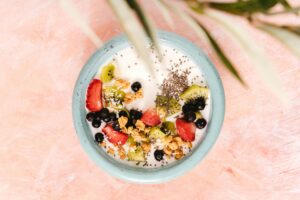In recent years, the term “superfoods” has gained immense popularity in the fields of nutrition and healthy eating. Foods such as chia seeds, goji berries, quinoa, spirulina, and avocados are often praised for their remarkable health benefits. On the other hand, some experts argue that this concept is more of a marketing strategy than a scientifically backed fact. So, are superfoods truly as beneficial as they are portrayed, or is this just a clever advertising ploy?
What Are Superfoods?
Superfoods are foods that boast a high content of nutrients, such as vitamins, minerals, antioxidants, fiber, or healthy fats. These foods are often associated with improving health, preventing diseases, and promoting longevity. Examples include:
- Chia Seeds: Rich in omega-3 fatty acids, fiber, and protein.
- Quinoa: A complete source of protein containing all essential amino acids.
- Goji Berries: A source of vitamin C, antioxidants, and iron.
- Matcha Tea: Contains high amounts of catechins, which boost metabolism.
- Avocado: Packed with healthy monounsaturated fats and potassium.
Benefits of Superfoods
- High Nutritional Value: Superfoods contain concentrated amounts of nutrients essential for health. For instance, antioxidants in superfoods help combat free radicals, potentially reducing the risk of chronic diseases.
- Health Support: Regular consumption of superfoods may contribute to better cardiovascular health, immune system support, and improved digestion.
- Convenience: Many superfoods are easy to incorporate into daily meals. For example, chia seeds can be added to smoothies, yogurt, or oatmeal.
Criticism of the Superfood Concept
- Marketing Hype: The term “superfood” is not scientifically defined and is often used as a marketing tool to promote exotic or more expensive foods. Common foods like broccoli, garlic, or oats offer similar health benefits but do not receive the same attention.
- Cost: Superfoods are often more expensive than local foods with comparable nutritional value. This can create the impression that a healthy diet has to be costly.
- Exaggerated Claims: Some health claims associated with superfoods are overstated or not scientifically proven. For instance, it is unlikely that consuming a single food will dramatically improve health or prolong life.
Local Alternatives
A healthy diet does not have to rely on exotic foods. Many local options, such as spinach, blackberries, pumpkin seeds, or sauerkraut, provide similar health benefits and are more affordable.
Conclusion
Superfoods can be a valuable part of a balanced diet, but they are not a magical solution for better health. It is more important to focus on the overall quality of one’s diet and regularly consume a variety of foods. Local and seasonal foods are equally beneficial and accessible to most people. Health should not be a marketing product but a long-term goal requiring an informed and balanced approach.

